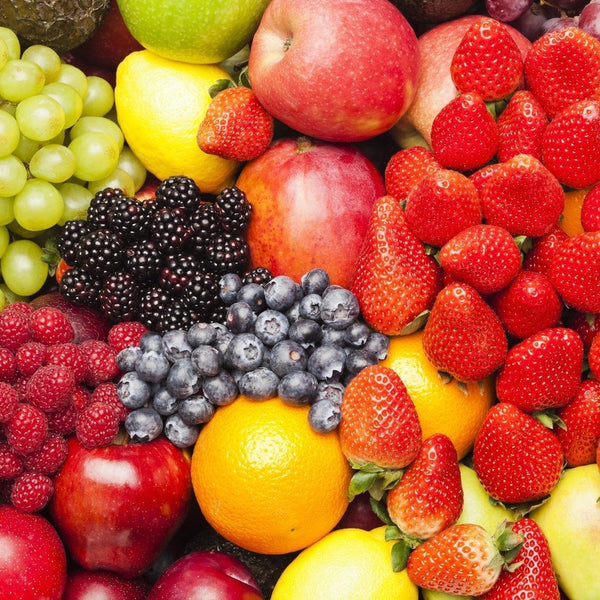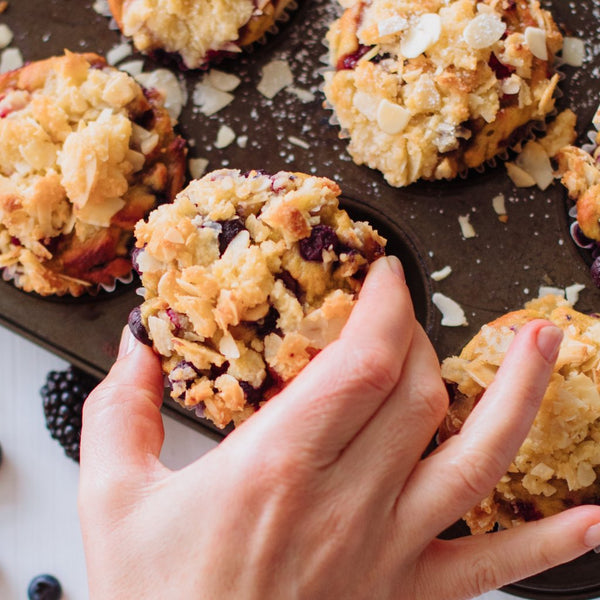
12 tips to support the immune system this winter
Our immune system protects us. It’s our role to provide it with the tools it needs so it can function at its best.
Modern living can lead us to low immune health: Stress, high intake of sugar, lack of sleep and lack of exercise contribute to decreased immune function. As the weather begins to turn, many of us start to worry about getting sick. The immune system has a vital role to play in our general health & wellbeing. It protects your body from harmful substances, germs and cells that could make you unwell. If the immune system is running smoothly, you won’t notice it is there!
Rather than waiting until you’re hit with cold and flu symptoms, support your immune function now to ramp up its defence and have you more resilient on a continual basis.
There are lots of healthy habits that you can adopt to support your immune system over the cooler months.
1. Protein with every meal
Adequate protein in the diet is essential for healthy immune function. Inadequate dietary protein is linked to dysfunction of the immune system. Amino acids (the building blocks of protein) are required in nearly all chemical processes affecting mental and physical function, in the immune system they are required for the formation of antibodies, which protect the body from antigens such as viruses and bacteria. Some good sources include lean meat, poultry and fish, eggs, nuts and seeds, beans and legumes and dairy.
2. Winter nutrients
Making sure that you have a good level of vitamins in your system in the cooler months is vital to supporting your immunity.
Vitamin C has been shown to increase resistance to infection and strengthen the immune system. Vitamin C reduces the severity and length of time of cold and flu symptoms. It’s important to note that vitamin C is decreased when exposed to heat, so try having some fresh fruit and vegetables high in vitamin C such as citrus, berries and kiwis or tomatoes, red capsicum and leafy greens.
Vitamin D is synthesised by the action of sunlight on the skin, is essential for the immune system and plays a role in the activity of serotonin. Why not roll up your sleeves and have your brekky/lunch outside? Insufficient levels of Vitamin D can also be addressed through dietary sources including fatty fish, foods fortified with Vitamin D and egg yolk.
Vitamin E is a great addition to your daily vitamin intake. The cold winter weather can cause your skin to get flaky, dry and itchy, but vitamin E can help your skin hold water, keeping it soft and resilient. It also has been shown to decrease inflammation, redness and wrinkles as well.
Vitamin A helps to fortify important processes in your body. It helps to maintain healthy vision, ensures a normal functioning of your organs and immune system.
3. Oysters anyone?
Zinc has multiple actions on the immune system, so it’s no surprise that deficiency is linked to impaired immune function. Oysters are a brilliant source of zinc, why not share a dozen with a friend? Other sources include meat, legumes, nuts and seeds.
4. A varied whole foods diet
A whole food diet consists of foods, which are as close to their natural state as possible. Wholefoods contain an array of nutrients, which occur naturally in the correct ratios to work synergistically to benefit the immune system. For example, 1 whole orange is rich in fibre, vitamin C and bioflavonoids, whereas a glass of reconstituted long-life orange juice may have been stripped of nutrition and then had it added back in.
5. Avoid sugar
Sugar suppresses the immune system; studies show sugar intake reduces the capacity of white blood cells (part of our immune system) to function properly. Many pathogens such as fungus or candida feed on sugar, leading to their increased virulence within the body.
6. Spice up your life
Spices are more than just aromatic substances used to season our food. Spices including ginger, turmeric, garlic, cinnamon and cayenne also have immune supporting properties. Try a turmeric latte; add cinnamon to your breakfast or some ginger in your stir-fry.
| Spice | Benefit |
| Turmeric | It's a potent anti-inflammatory and antioxidant. It may also help improve symptoms of depression and arthritis. |
| Garlic | Improves immunity, stabilises blood sugar levels, and supports heart and brain health. |
| Cinnamon | Contains antioxidants, which helps neutralise free radicals, preventing them from damaging cells in the body. |
| Cayenne Pepper | increases the production of digestive fluid, sends enzymes to the stomach to aid in digestion, and provides extra protection to the stomach against infections. |
| Cloves | Cloves are full of antioxidants. These compounds help your body to fight free radicals, which damage your cells and can lead to disease. |
7. Gut health
The gut (gastrointestinal tract) is the body’s first line of defence against disease-causing pathogens. It is where we digest and absorb nutrients; it houses our gut microbes (known as gut bacteria) and regulates immune homeostasis. To support gut health, prebiotic foods to feed gut microbes and probiotic foods containing beneficial bacteria can be included in the diet.
Prebiotic foods: garlic, onion, leeks, asparagus, Jerusalem artichoke, unripe bananas.
Probiotic foods: yoghurt, kefir, sauerkraut, tempeh and miso.
Another way to support your gut health is to add Bone Broth into your diet. Drinking bone broth daily can help support joint, skin and gut health while also providing many important vitamins, minerals and amino acids. It's also versatile, delicious and easy to incorporate into a variety of different recipes, making it a must-have for your weekly meal plan.
8. Add some good fats to your diet.
Eating healthy fats provides your body with the energy and essential fatty acids it needs to optimise its immune function. Foods rich in essential fatty acids such as Omega-3 DHA & EPA help to promote eye, brain and heart health
9. Rest and relax
Stress is known to have an unfavourable effect on the immune system. Incorporate de-stressing techniques into your daily routine, mindfulness apps, yoga, a warm bath or whatever works for you. Resting is an important part of the recovery process. When someone gets sick the aim is to recover as quickly as possible but the body needs to be given the opportunity to do so. Take a break, have a sleep in, and skip the high-intensity workout.
10. Goodnight, sleep tight
Studies demonstrate that individuals who have poor quality or inadequate sleep are more likely to get sick when exposed to a virus. Establish a regular bedtime and waking time, avoid bright lights and screen time before bed and avoid caffeine after midday. Aim for 7-9 hours and waking refreshed.
11. Move your body
Incorporate movement into your day every day- moderation is key. Exercising on a daily basis maintains healthy circulation and therefore blood and nutrient supply to the whole body. Moderate exercise aids in counteracting the effects of stress and improves sleep, strengthening the immune system. Take the stairs, get off the bus two stops early, do some gardening, cycle to work or join a group fitness class.
12. Wash. Your. Hands.
It’s an obvious one, but so important as there are a number of infectious diseases that can be spread from person to person by contaminated hands. Proper hand washing can help prevent the spread of disease-causing germs, including bacteria and viruses. Wash your hands after using the toilet or changing nappies, before, during and after food preparation, before eating, after blowing your nose, before and after attending to sick people, after smoking, handling animals or rubbish or working in the garden.


